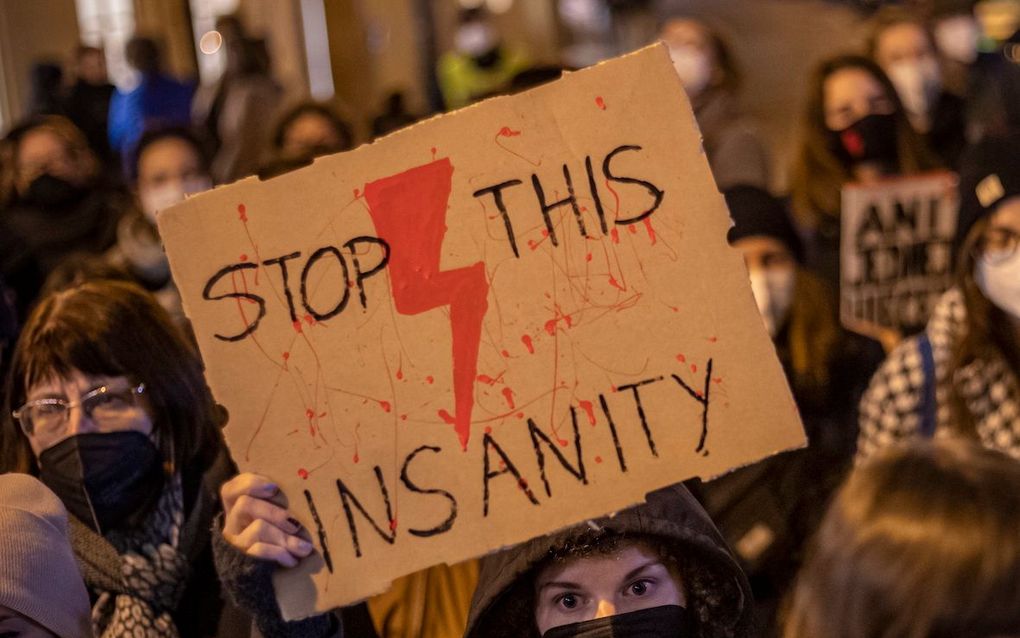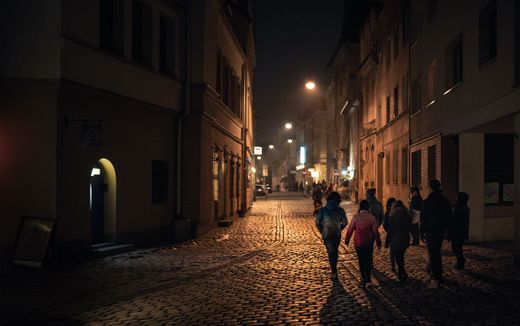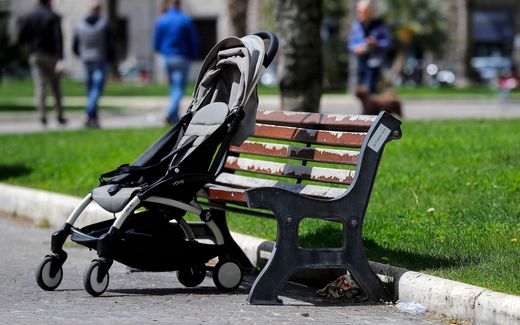Weekly column: Polish Evangelicals are sometimes ready to ‘abort’ their government as well
14-01-2022
Christian Life
Sashko Nezamutdinov, CNE.news

Protest against the Polish abortion policy. Photo EPA, Martin Divisek
Christian Life
“We do not agree with the appropriation of our body”, “This is pure barbarism”, “This is women’s hell”, “I would rather abort my government”. I read these slogans on my friends’ Facebook posts last autumn. And it was not so much the slogans that shocked me, as the fact who posted them.
A good number of my Evangelical friends showed their solidarity with the protesters as the Polish Constitutional Tribunal ruled that legislation on abortion in the case of severe fetal disability was unconstitutional. This negates the country’s abortion compromise developed in the 1990s. The ruling was made by a majority vote.
In connection with the ruling, the protesters stormed into the streets of many Polish cities to show their disagreement with the tightening of the abortion law. And all this at a time of the worst pandemic and sanitary restrictions in force.
A red lightning became the symbol of this protest which was supposed to symbolize women’s anger towards the new legislation. A year later, you can still see this sign on shops, in people’s windows, car stickers and also on face masks.
Three exceptions
Until the Tribunal’s decision, abortion in Poland had been illegal, with three exceptions. Women were allowed to abort the baby if it resulted from rape, if the mother’s life was in danger and if the doctors knew that the baby would be born disabled.
Article 30 of the Polish Constitution states:
The inherent and inalienable dignity of the person shall constitute a source of freedoms and rights of persons and citizens. It shall be inviolable.
And it is to defend this statement that the Tribunal’s decision was made. The government’s rationale basically is this: if we have come to understand the value of life as people and as we have learned to respect and help the disabled. And as humanity is constantly fighting discrimination of all sorts, why on Earth would we as a society discriminate against the unborn person simply because we found out that he or she is disabled.
The court decided that terminating a life of a human being in his or her mother’s womb simply based on this fact would be a violation of dignity and an expression of discrimination against the disabled. Therefore, eugenic abortion has become illegal in Poland. We might be the only country in Europe where this is the case and where the laws on abortion are getting stricter and not more liberal like everywhere else.
Why are Evangelicals pro-abortion?
In all the commotion and protests, what personally surprised me most was the attitude of many Evangelical Christians in Poland who supported the pro-abortion position during the demonstrations. I’m still trying to figure out what’s behind it. Still, nothing but shallow teaching in churches, or no teaching at all on the subject, comes to my mind.
On top of that, we may add that Polish Protestantism is exceptionally anti-Catholic. Many converts in Polish Evangelical and mainline Protestant churches joined not because of convictions, not because of theological preferences, but to spite the Catholic Church. And because the new anti-abortion law is strongly associated with the right-wing and pro-Catholic government, these Protestants throw the baby out with the bathwater by joining liberal anti-Catholic protests even though they go against the Bible.
It’s fascinating to watch this dynamic because usually, the stance on the value of life and abortion is precisely what unites Catholics and Protestants. Or at least this is how it has historically been until the era of Protestant liberalism in social issues.

Preaching series from Acts
In God’s providence, it so happened that just when the protests commenced, I began preaching in my church on a series from the Book of Acts. When I reached chapter 3, I had to deal exactly with what the liberal part of the Polish society is trying to fight: a case of a man being born disabled. As I worked on the text, I did a more thorough study of one verse:
Acts 3:2 (ESV): *And a man lame from birth was being carried, whom they laid daily at the gate of the temple that is called the Beautiful Gate to ask alms of those entering the temple. *
A good number of Bible translations will say “lame from birth,” just as written in ESV. But a closer study of the Greek text shows that St. Luke wrote: “lame from his mother’s womb”, as other translations faithfully show.
I suppose the modern translators of the Bible were trying to make it sound the way we would say it today. Still, in that, we have lost a critical piece of information: the man was disabled before his birth and not from his birth.
John Calvin, in his commentary on Exodus 21:22, writes: [...] fetus, though enclosed in the womb of its mother, is already a human being, (homo) and it is almost a monstrous crime to rob it of the life which it has not yet begun to enjoy. If it seems more horrible to kill a man in his own house than in a field, because a man’s house is his place of most secure refuge, it ought indeed to be deemed more atrocious to destroy a fetus in the womb before it has come to light.
Better than bumper stickers
We should be mindful of which lightning we trust in times like this. As Christians, we have a great reminder written in Zechariah 9:14 of who is the ultimate author of arrows and lightning and whose anger we should be aware of far more than human anger expressed with a bumper sticker or a window poster:
Then the Lord will appear over them,
and his arrow will go forth like lightning;
the Lord God will sound the trumpet
and will march forth in the whirlwinds of the south.
Apart from this, our role in the current dispute is not to believe in our government or become its enemy. It’s not like we have to think so tribally. Amid all these hot discussions and fights, we should remember not to put ourselves in the position of someone who is “above” the dispute, but let us not forget that we have not been called to be “in the centre” or to hold a “balanced position” but to be a witness to the God who gives life and who forms man in the womb.
Related Articles





